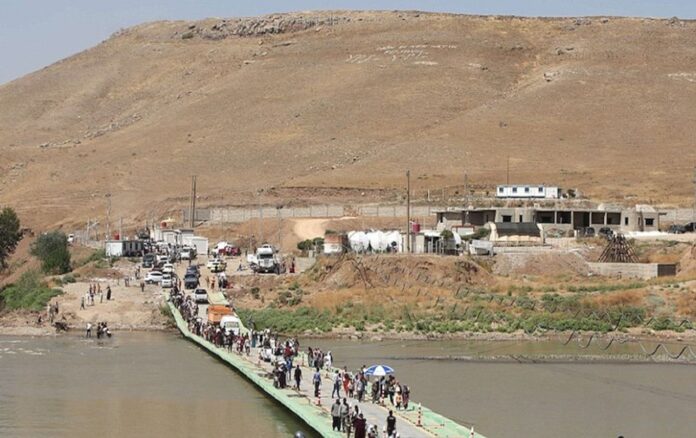Authors: Harith Hasan, Kheder Khaddour
Affiliation: Carnegie Middle East Center, Masarat Institute for Cultural and Media Development
Organization/Publisher: Carnegie Middle East Center, X Border Local Research Network
Date/Place: March 30, 2021/USA
Type of Literature: Paper
Word Count: 10,048
Link: https://carnegie-mec.org/2021/03/30/making-of-kurdish-frontier-power-conflict-and-governance-in-iraqi-syrian-borderlands-pub-84205
Keywords: Kurdistan, Iraq, Syria
Briefs:
With weak central governments on both sides, the border crossings between Iraq and Syria have seen the emergence of various Kurdish political and armed entities vying for control over the region. The Kurdistan Regional Government (KRG) and its main ruling party the Kurdistan Democratic Party (KDP) on the Iraqi side, and the Kurdish-dominated Autonomous Administration of North and East Syria (formed of Democratic Union Party, PYD, and People’s Protection Units, YPG) on the other side of the border. The Kurdistan Worker’s Party (PKK), with its fight against the Islamic State (ISIS) has emerged as a competing force with a pan-Kurdish vision and its communist ideology. It also has ties to the People’s Protection Units (YPG) and Sinjar Protection Units (YBS). The ideological difference between PKK and KRG is such that the former advocates a transnational Kurdish democratic federation run by elected assemblies while the latter is content to stay within nation-state boundaries and operate as an autonomous entity. With the PKK’s success in Sinjar, an area formerly a stronghold of KRG, the rivalry between the two has deepened. The Syrian Kurdish factions are still struggling for power in their regions while maintaining the alliance with PKK to protect it from Ankara’s and Damascus’s advances. Although PKK was uprooted from Syria in 1998 by the Adana Agreement between Syria and Turkey, it still has great influence there, to the ire of the central governments. Ankara is set on eliminating PKK’s foothold in Northern Iraq and started a military campaign in 2020, deeply angering Kurds in the region and weakening the Kurdistan Democratic Party’s (KDP) economic ties with them as well as KDP’s popularity since it was seen as collaborating with the enemy, i.e. Turkey. The future of the region depends on developments in the Iraqi Syrian border.
By: Sahar Sadiq, CIGA Research Intern




